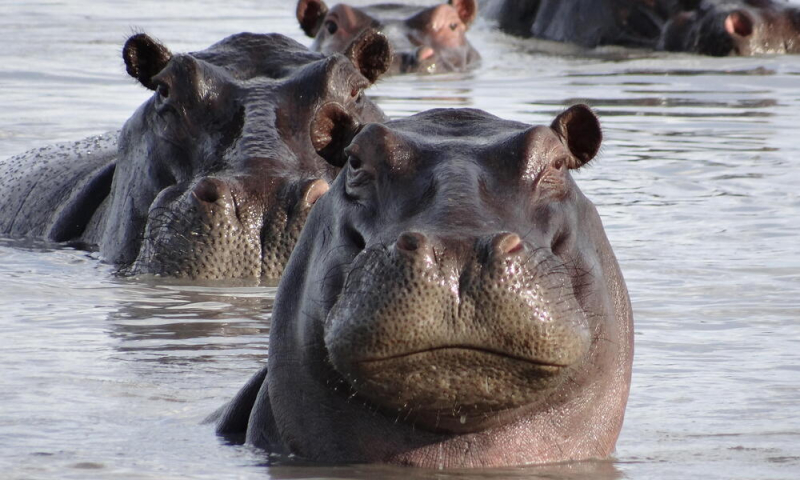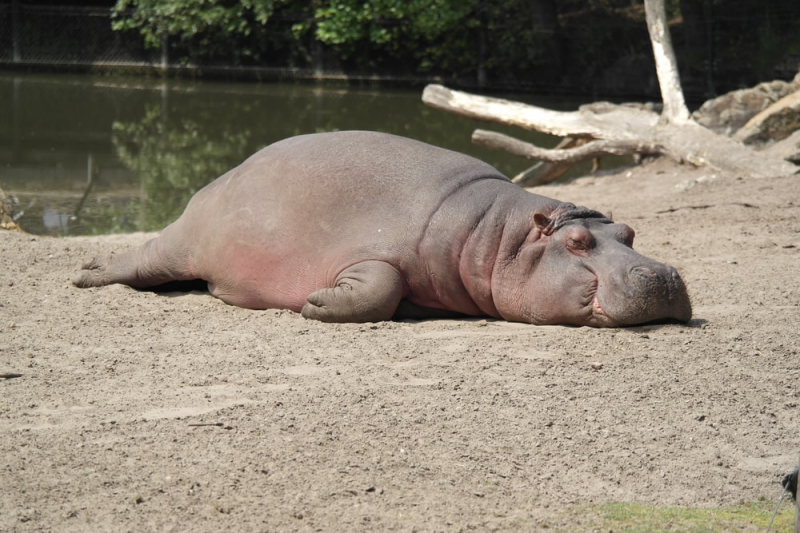Hippopotamus

Large and semi-aquatic, the Hippopotamus is a native of sub-Saharan Africa. The pygmy hippopotamus is the other one of just two remaining species in the family Hippopotamidae (Choeropsis liberiensis or Hexaprotodon liberiensis). Its name is derived from the Greek word for "river horse". The largest land mammal is the hippopotamus, followed by elephants and rhinos. Additionally, it is the largest living land artiodactyl. The closest surviving relatives of the Hippopotamidae are cetaceans (whales, dolphins, porpoises, etc.), from whom they separated some 55 million years ago, despite their morphological resemblance to pigs and other terrestrial even-toed ungulates.
Hippos have actually mastered the art of sleeping for 16 to 20 hours every day. When they are on land, you can regularly see them lounging in the sun and sleeping in large groups, but they don't just doze off on land; they also learn to ascend to the surface of the water to breathe while still dozing. Hippos are herbivores, and they spend most of the day scavenging. They can continuously graze on grass for a notable five hours.











